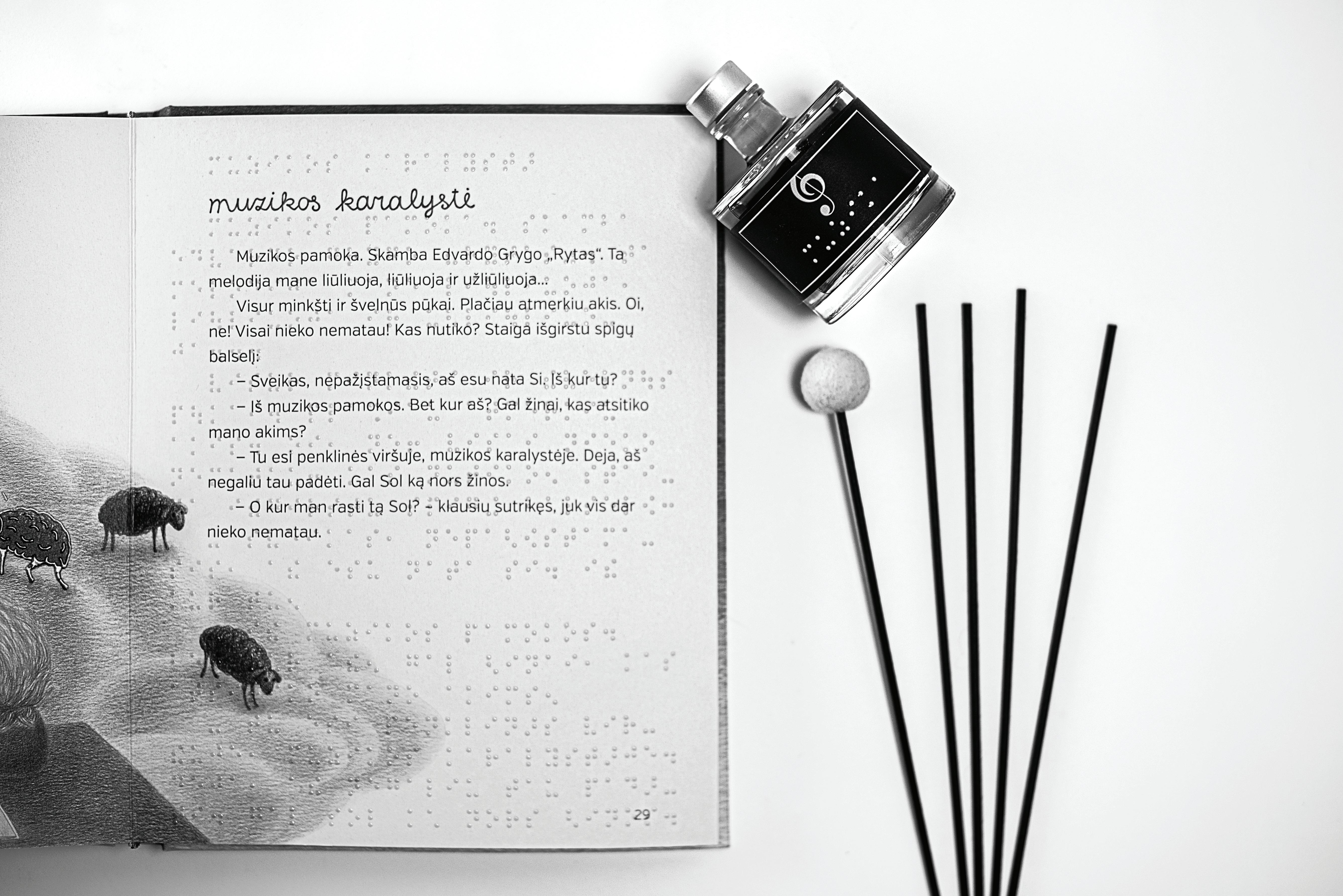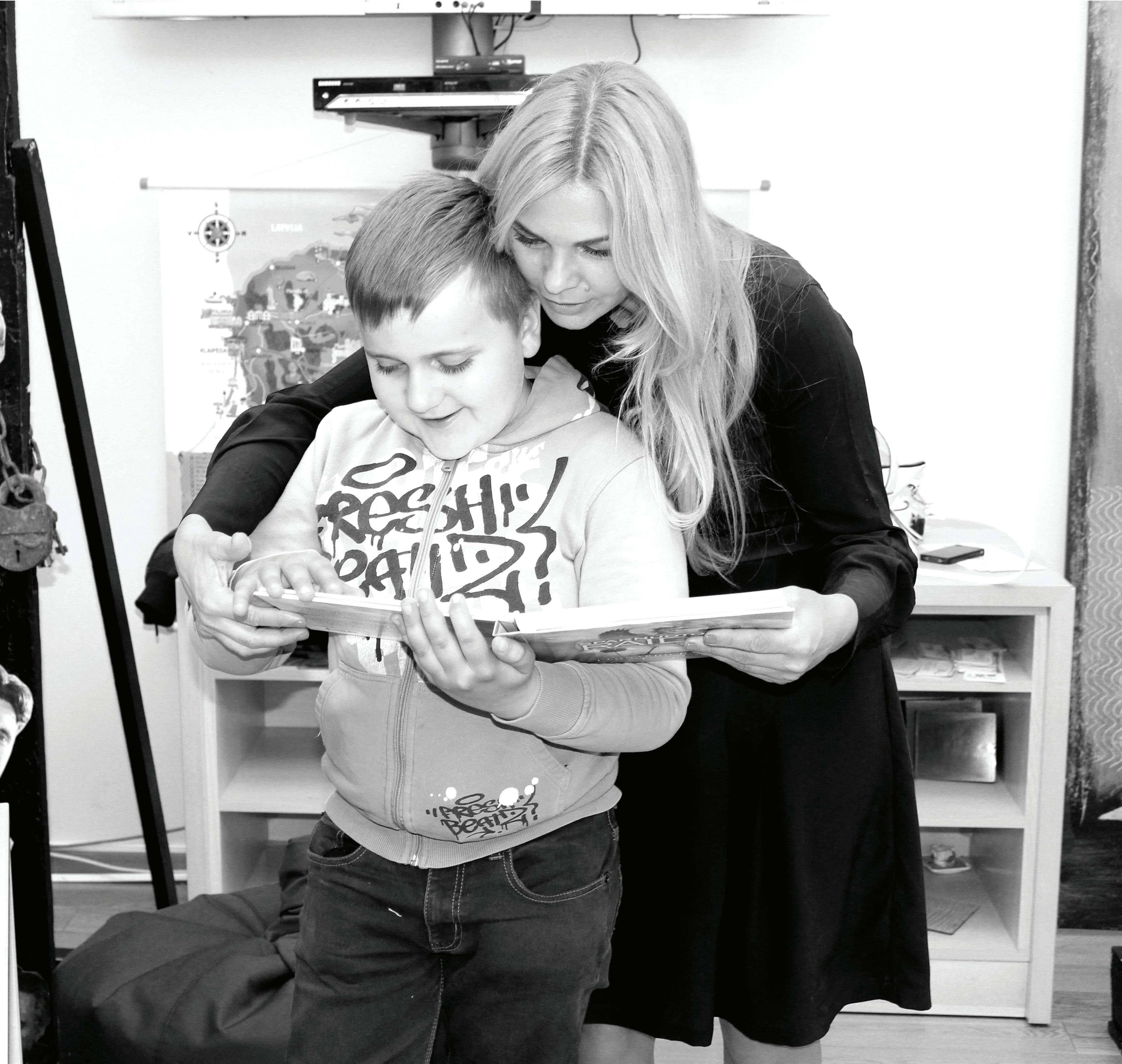
13 minute read
Case 1: Business or Art
Raminta Pučėtaitė, Vilnius University Rasa Pušinaitė-Gelgotė, Vilnius University Aurelija Novelskaitė, Vilnius University
Business or Art
Advertisement
SOCIAL ENTERPRISE CASE STUDY
Societal need for this enterprise
In Lithuania, some social groups do not have equal opportunities to access culture and enjoy the right defined by UNESCO Universal Declaration on Cultural Diversity (adopted 2001). The problem is conspicuous in the accessibility to visual arts for blind or visually impaired people. According to the Lithuanian Union of the Blind and Visually Impaired, around 20,000 blind and visually impaired residents may experience the limitation of this general right. More specifically, in Lithuania, as in the rest of the world, the number of fiction books in Braille for blind children is considerably small, and literacy amongst blind people is decreasing.
One reason for this is the technological complexity of publishing Braille books, which makes them quite expensive. Besides, the market for these books is rather small. Therefore, audio books for blind people are much more popular, and the availability of Braille books is markedly poor. Moreover, these books are published in a limited quantity (from 1 to 10 units), which also limits the accessibility of Braille books. Braille books for blind children are usually without illustrations and adapted just for blind people. This eliminates the possibility for blind children to read books with relatives who do not have visual impairment and so get acquainted with both literature and fine arts.
Another restriction to accessing culture for blind and visually impaired people is the scarcity of information adapted to their needs. For example, tourist sights and cultural objects are presented without visual information and cultural context. Therefore blind people miss the opportunity to understand the major part of cultural heritage.
The scarcity of selection and quality of publications for blind people influences blind children’s motivation to study and read Braille books with illustrations, which is an important means to develop blind children’s intellectual capabilities through tactile senses, and their further development and achievements.
Business or Art is a non-profit organization producing innovative books in Braille and regular lettering for blind and sight impaired people, in particular, children. In addition, some of the books can be read using three or four senses such as smelling and hearing. They can be read with family members and friends who do not have sight impairment. Publishing activities go in line with educational ones for high school children in Lithuanian cities who learn how blind people perceive the world and creative workshops in which both blind and seeing children and young people take part, producing pictures, scents or ceramics.
Founding motives
The founder of the social enterprise “Business or Art” (Verslas ar menas), Eglė Jokužytė, established this nonprofit organisation in 2012 with the motive to contribute to a better life for blind people, helping them break the closed social circle and giving an opportunity to connect with others. Ms Jokužytė had not had experience with blind people in her close environment by then. She had been working in a family-owned publishing house, had gathered experience in different roles, had been responsible for the company’s marketing, e.g. new product development, sales, communication, and had gained knowledge about different publishing technologies. While still working in the publishing house she started a Master’s programme in Public Relations. In one of the projects for her studies and later when writing Master’s thesis her focus turned to social issues and children. As the founder puts it, the turn to social entrepreneurship was triggered by knowing blind children and their families. As the usual activities became less rewarding, did not give deeper experiences, and a wish to use her knowledge more widely bringing happiness to oneself and others started dominating her mind.
Vision and goals
The vision of the social enterprise is to provide blind and visually impaired people with an opportunity to read books, develop their competences in literature and arts, and diminish their social exclusion.
The mission is to provide an opportunity to blind and visually impaired children over the world to read books and feel equal, help them to develop and discover their talents.
The goals of the social enterprise are as follows:
To develop children’s talents through project activities, deepen societal awareness about disabled people and change attitudes towards them
To change different sectors’ attitude to social issues through the products and services and increase motivation to create better future together
Resources
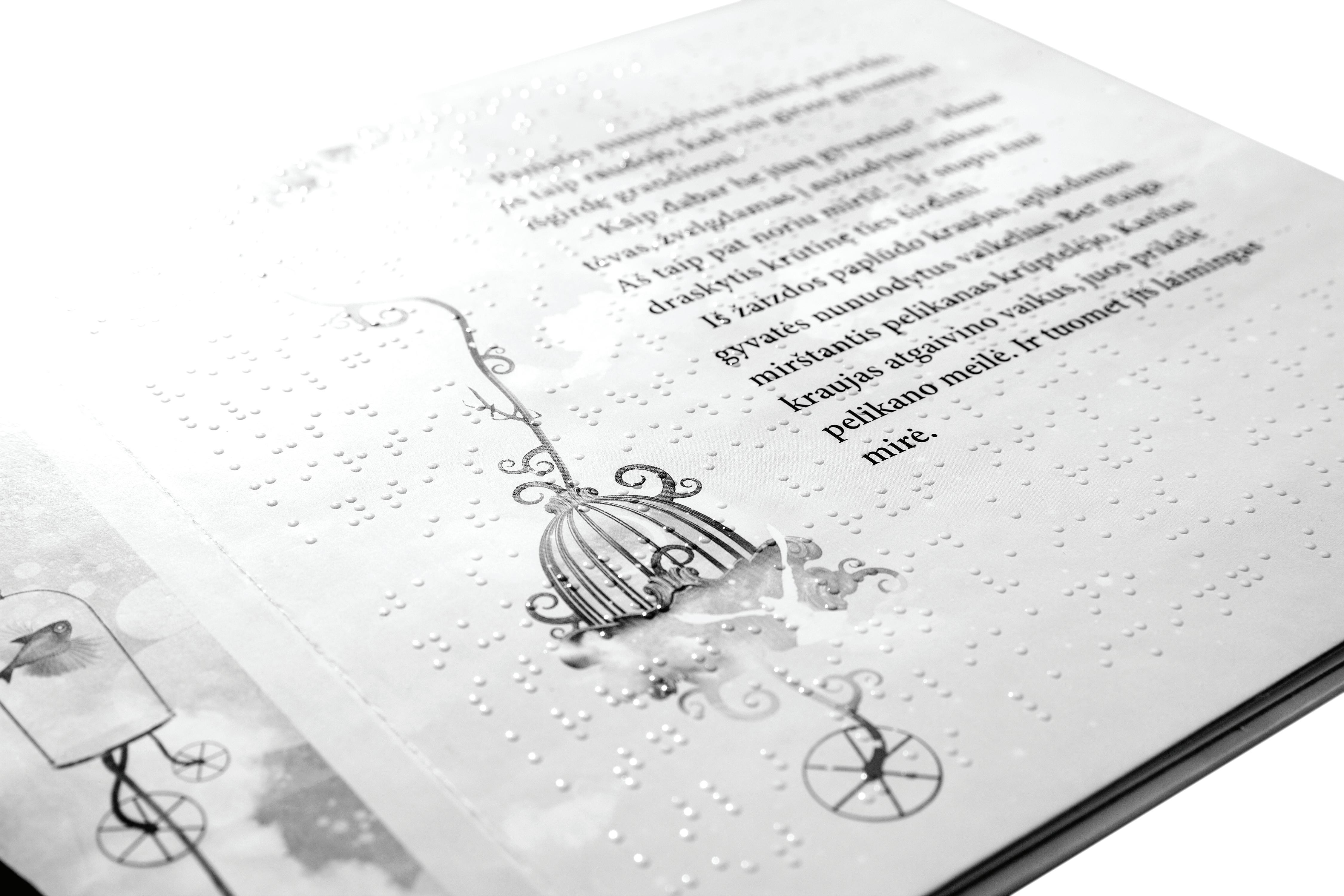
One of the basic resources of the enterprise is its founder’s knowledge and experience in the field of poligraphy which she extended through communication with blind people, e.g. she learnt about subtleties of the Braille lettering, communicating via tactile pictures. Pictures (e.g. artefacts, photos, maps, schemes etc.) in the books are presented in the way that they can be perceived by sight and touching, and texts are complemented with the Braille lettering. In this way, the enterprise adds to are sold in supermarkets and bookshops. Since 2020 the activities of the culture, education, tourism and books are sold in the Gallery of a Point (Šeimyniškių str. business sectors, increasing integration and 16, Vilnius) that was founded by the enterprise. The diminishing social exclusion of disabled people. enterprise participates in various fairs where The social enterprise employs freelance professionals, e.g. IT specialists, illustrators, designers, and editors. Their engagement varies depending on the running projects. It collaborates with other production companies abroad which have particular technologies. The enterprise employs blind people who are responsible for educational activities, project customers can not only open the books but also hear about the enterprise’s activities and the benefits of such books to children. These books are popular with families who consider deepening children’s awareness about the world and developing their responsibility important. They also find place in book collectors’ homes. coordination, product testing and sales. Volunteers Funds for publishing the books are raised in various are relied on in fairs and public events. ways. One source of income is collaborative projects Books are sold to educational and culture organizations, e.g. high schools, libraries, training centres which work with children with special needs, also business companies which give these books as which are funded by the contractor (e.g. museums, libraries). The enterprise applies for different project grants for partly funding the books, looks for sponsors who donate to social projects and book publishing. presents to employees’ children and/or organizations Income comes not only from sales of books. Part is supported by them. Books are distributed by book obtained from an informal education class “Let’s know distributors, bookshops as well as in the e-shops the invisible world” to high school children in schools www.taskoistorija.lt and www.vam.lt. Regular books for and libraries. Such activities are funded by the children, which are also published by the enterprise, program “Culture Passport” of the Ministry of Culture, Education, Science and Sports of the Republic of Lithuania. Still another source of income that is used for book publishing is gained from business presents which were created by visually impaired children and young people. One of the business presents, i.e. Home and office scent was created in the social ‘There is a point in your life when you understand project “Invisible World of Scents”. The scents were that you want to change something. Then it is created to fairy tales in the book “Close your Eyes” and important to stop and listen to your inner voice. can be smelled on its pages. The book can be bought Most often your new idea looks weird to others and as a product which is popular with socially responsible you have lots of hesitations about your new choice, companies. but you undernstand that you know how to do it and that you can do it. When you think about it your eyes In cooperation with other stakeholders in the are shining and something inside is going on. At this educational and cultural sectors this social enterprise moment it is important ot hear what your heart is is attempting to create equal opportunities for blind saying and simply dare to start. Such changes in life and visually impaired people to use cultural and help a person to find a calling. Social enterprises are educational resources in Lithuania, increase the born when one understands that not everything is accessibility to cultural objects and possibilities to measured by profit and has strong wish to help to learn about them, bringing different social groups solve a problem.’ closer to each other.
Actions
The social business engages in three types of activities:
Publications adapted for blind people and those without sight impairment
Social, cultural, educational projects and services targeted at eliminating social exclusion of disabled people
Informal educational projects to children and youth which contribute to the development of public social awareness
The social enterprise Business or Art employs cutting edge technological solutions to produce fiction books under the trademark “The Story of a Point” (Taško istorija) that can be read with three or four senses (i.e. sight, touch, hearing and smell). They are printed in both regular and Braille lettering, with flat and raised illustrations that deepen cultural and artistic awareness. This allows blind children to read the books with their family members whose sight is not impaired. The books are published from 100 to 500 units, which means that they can be owned by households, not only libraries. For blind children this is an opportunity to feel similar to peers without sight impairment as they read and discuss the same contents. Moreover, the accessibility of books for households provides more opportunities for blind people to practise their tactile senses which are related to intellectual development, particularly in childhood. Children who read books in Braille in ‘Social business is interesting and meaningful but complex as a business model. It would not be possible without people who are not indifferent to social problems. Cooperation helps not only to discover a need but also make stronger change. Social enterprise is like an injection to different sectors that helps to change their attitude to social aspects and incites the wish to create brighter future.’ childhood later better adapt to the environment (which is usually created by seeing people for similar ones), complete higher education and have better employability and career prospects.
These books educate children without sight impairment as well. It is an opportunity to experience the way of reading of blind people and to understand how they perceive the world. Many children reflect on these aspects for the first time in their lives, usually in the project activities coordinated by the social enterprise.
The founder of the social enterprise nelieves that books in Braille and regular lettering contribute to the development of creativity and talents of blind and visually impaired people. This is evidenced by the birth of new “diamonds”, i.e. illustrators of three books published by Business or Art.
The project outcomes are not limited to knowing Braille lettering and reflecting the world of blind people. They are targeted at deepening social competences, tolerance and empathy of society, and changing attitudes to disabled people.
Some informal education projects such as “Let’s know the invisible world” target high school children. Other projects are aimed at both seeing and blind or sight impaired children or children with special needs in creative workshops of a project such as “I see by heart” (https://bit.ly/2GNNkeC) where tactile cards
are produced and the selected ones used for a
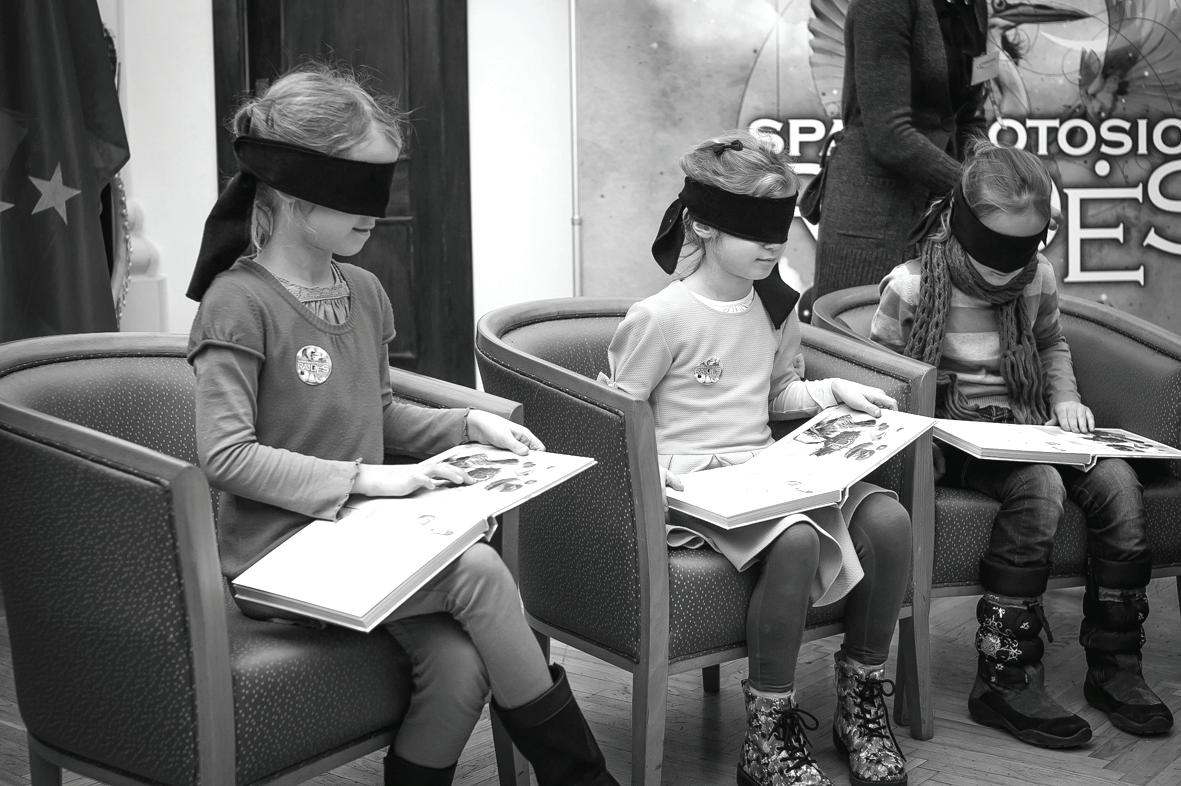
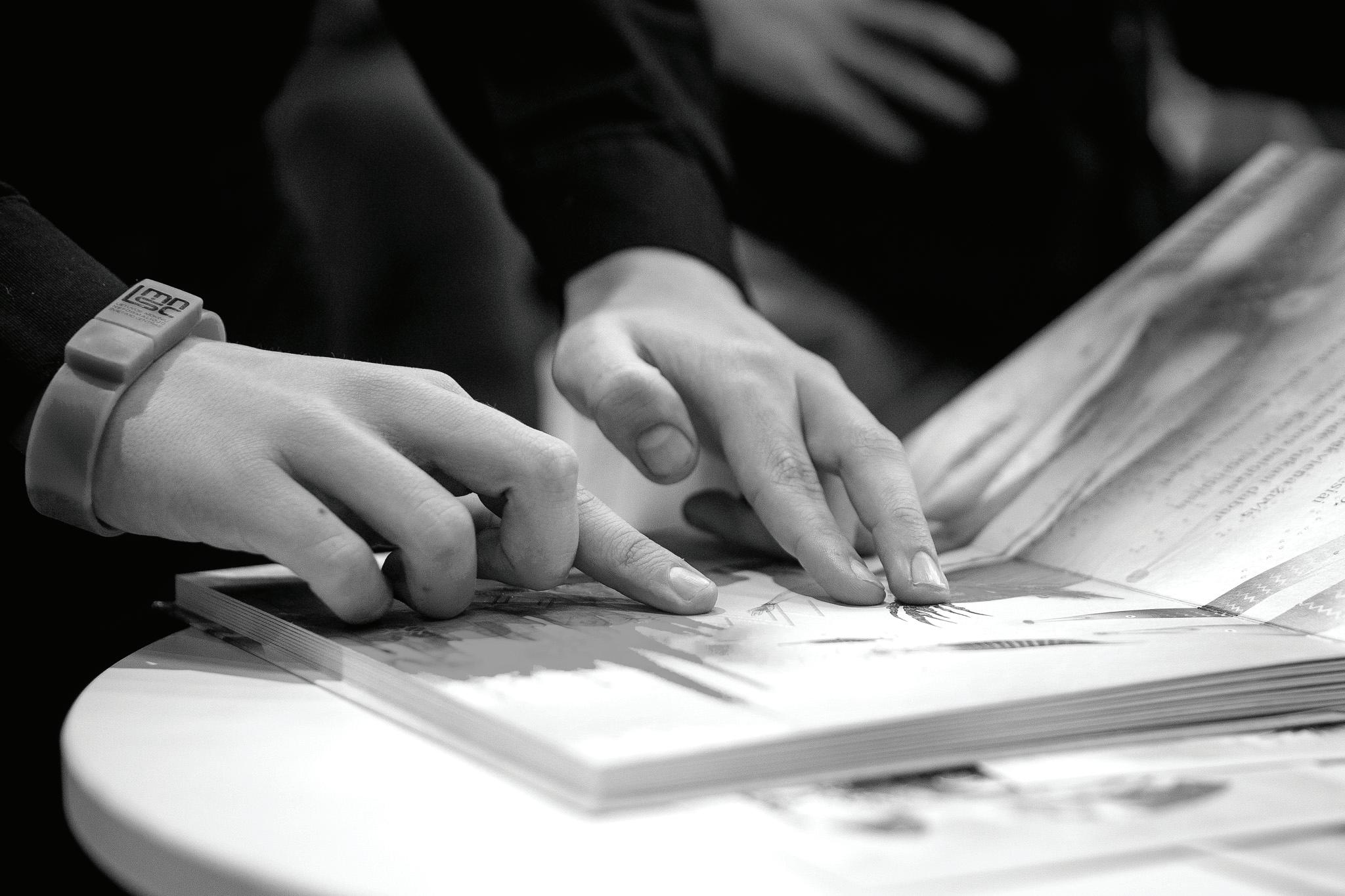
8
‘When relating to the blind I understood that the world’s beauty is not just what we see by eyes. To see the beauty of life differently is the most important lesson which I get by doing the things I know best and my greatest wish is to facilitate such learning of others.’ Eglė Jokužytė, founder
Outcomes and impacts
calendar; “Invisible World of Scents” The outputs of the activities are measured by the (https://bit.ly/3kccFNN) where four home scents were number of books donated to blind people and sold per created to illustrate fairy tales in the book “Close your year. Sales are important as they allow families with eyes” (Užsimerk); and “I see the world differently” blind children to expand their private library. Part of the (https://bit.ly/3mhhvv1) where blind children from profit of Business or Art is given to publishing Braille social care homes can create ceramics together with books and the charitable initiative “Let’s donate a book an artist Nomeda Marčėnaitė and later participate in a to a blind person”. By 2020 there were 7 books touring exhibition etc. In this way, workshops create published in both regular and Braille lettering, from 100 possibilities for sighted children to interact with blind to 500 items each and 1,900 items in total. About 30% peers for the first time and lose the fear of the of the books are given as presents to blind children, unknown. As the business founder puts it, such children with special needs, and educational projects trigger changes in individuals, children’s institutions for disabled children. Before that, blind and motivation to do good deeds and help someone visually impaired people would borrow the books from increases, and they develop a wish to create a more a special library. At present, some blind people have beautiful and better world. their own Braille books collection which they can read together with their seeing relatives. Lack of information that is culturally sensitive for blind people is handled by publications in both regular and Another part of the profits goes to social projects in Braille lettering with tactile pictures in which which both seeing and blind or visually impaired people photography, artefacts, maps, frameworks etc. are take part, aiming to reveal the participants’ talents and communicated. Publications and stands with present them to society. Over 7 years, 5,000 children schemes, photos, artefacts, maps for outside and took part in the creative workshops organised by the inside use convey the information by regular and business. Hence, a number of good deeds and tactile symbols, including Braille lettering of texts. In motivation for helping behaviour may have become addition, these products have an educational function stronger. for children who want to receive information not only by sight but also by touching. By creating products of Business or Art is among the few Lithuanian social universal design the social enterprise aims to increase enterprises which measure their social impact. First, social integration of blind, visually impaired or impact is considered as change in sighted children’s otherwise disabled people and reduce social attitudes to blind people. During the creative inequality. Such products enable disabled people to be workshops, they fill in questionnaires before and after more self-dependent and live with dignity, actively the activities. Second, the subject who acquires a engage into urban communities, and experience book is considered. For example, if a book is bought by culture. a library, the founder makes the assumption that the book is read by more than one person, therefore, social impact is greater. The enterprise plans to measure the intensity of communication between blind and family members, children’s development and increased empathy of society members.
Awards
Some awards received by the social enterprise Business or Art
Children’s Best Friend, 2019
Children’s Confederation NGO Leader of Social Entrepreneurship, 2017
The Ministry of Economic of the Republic of Lithuania
National Award of Equality and Diversity, 2016 A finalist of the first
in the nomination of the Breakthrough of the Year for bringing together the visually disabled with the seeing through sensing books. Award of the Equal Opportunities Ombudsperson and National Forum of Equality Awarded as Leader of Change
and Diversity competition for social business in Lithuania organised by “Reach for Change” The books published by Business or Art have also received acknowledgement both nationally and internationally, e.g.:
In 2019 the book Sparnuotosios raidės: Pasakos reginčiųjų ir Brailio raštu (Winged letters: Fairy tales in letters and Braille). Vilnius, Lithuania: Verslas ar Menas, 2015 [24pp.] was included in the IBBY - The International Board on Books for Young People Selection of Outstanding Books for Young People with Disabilities (https://bit.ly/33mMfCh).
Most Beautiful Book Of The Year, 2015, competition Art of the Book 2016 organised by the Ministry of Culture of the Republic of Lithuania, Lithuanian Artists Union and Vilnius Academy of Arts.
Publication of the Year, 2016, Award by Lithuanian Publishing Industry.
